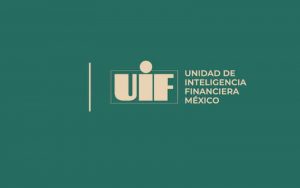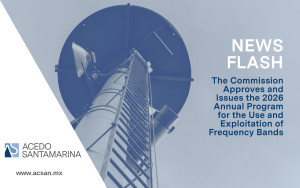
Within the framework of the actions being carried out by the executive branch to attack the problem of corruption in our country, on January 3 of this year, the Ministry of Public Administration and the Financial Intelligence Unit (UIF) of the Ministry of Finance and Public Credit signed a collaboration agreement to establish the bases and mechanisms for collaboration and joint coordination in the fight against corruption.
The purpose of this agreement is to establish a scheme for the exchange of information to help investigate possible violations of the General Law of Administrative Responsibility for improper acts of public servants, regulated by said law.
However, the foregoing has as a direct antecedent the result that Mexico obtained in the January 2018 Mutual Evaluation Report of the Financial Action Task Force against Money Laundering (“FATF”), of which Mexico is part, and in which it states as one of its findings that, “the number of criminal prosecutions and convictions for Money Laundering cases is very low”. According to the report, “Significant deficiencies were detected in the way Money Laundering cases are investigated. Specifically, parallel financial investigations are only very rarely carried out and money laundering is rarely prosecuted as a stand-alone crime. The level of corruption affecting law enforcement authorities, particularly at the state level, undermines their ability to investigate and criminally prosecute serious crimes.”
Likewise, another part of the report also states that, “based on the information provided in the June 2016 FATF National Risk Assessment of Mexico and other public source documents, the amount of proceeds generated by predicate offenses committed in and outside Mexico is high. The main domestic fund-raising crimes can be divided into three levels of magnitude: (i) domestic organized crime, including drug and human trafficking; (ii) corruption, and (iii) tax evasion.”
As can be inferred from the results of the FATF Mutual Evaluation Report, corruption continues to be a pending issue in our country; therefore, in addition to directly prosecuting crimes related to improper acts by public servants (such as bribery, influence peddling or diversion of public resources), it is also of utmost importance to begin using financial intelligence and to strengthen the investigation and prosecution of financial crimes and, in particular, the crime of money laundering to help in the detection of such crimes committed by public servants. In turn, the fight against corruption will also help strengthen the capacity of the authorities to criminally prosecute money laundering, since, as can be seen, money laundering and corruption are two problems that are closely linked and require a comprehensive strategy to combat them.
Therefore, the new government has also announced that new changes will be proposed to the Federal Law for the Prevention and Identification of Operations with Resources of Illicit Origin, in order to broaden its scope and include political parties and labor unions as entities subject to the obligations established in said law, and therefore, subject to supervision by the authorities in this matter.




